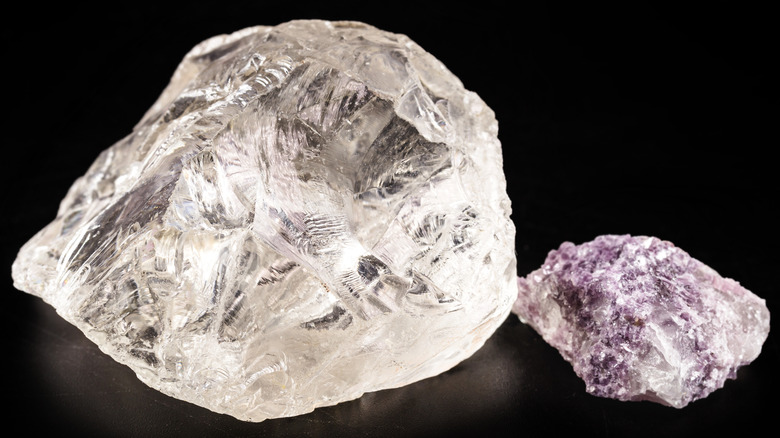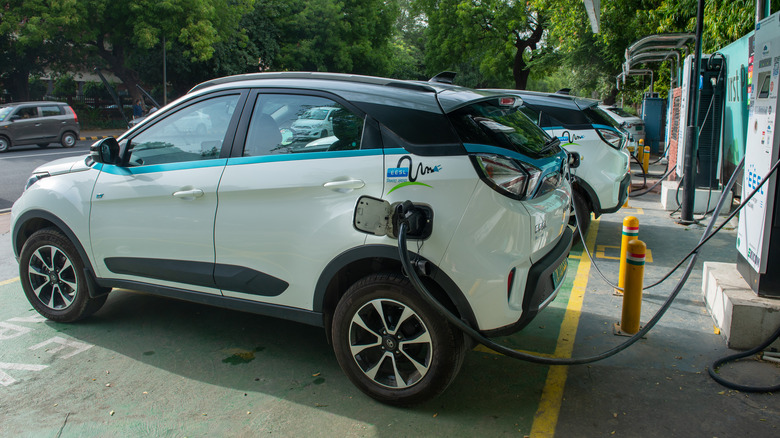A Huge Lithium Discovery Just Changed The Stakes In EV Production
Lithium is one of the most sought-after commodities on Earth right now thanks to its fundamental role in making batteries that power everything from smartphones and laptops to electric vehicles. Such is the race for lithium that it has become a topic of geopolitical tussle between countries that have natural reserves and their diplomatic allies. As of 2023, the majority of the world's lithium mining is concentrated in China, Australia, and Chile. However, a fresh geological discovery could very well change the game.
The Geological Survey of India has announced the discovery of "5.9 million tonnes inferred resources of lithium" in the Salal-Haimana region of India's northern union territory Jammu & Kashmir. Chile currently holds the largest lithium reserves in the world at around 9.2 million tonnes, followed by Australia, Argentina, and China. The recent discovery propels India straight to the second spot in terms of lithium reserves across the globe. India currently imports most of its lithium from China, which happens to be one of the biggest lithium-processing hotspots in the world courtesy of a massive electronics manufacturing industry and a cut-throat EV market.
It will be a slow transition
Also referred to as white gold due to its high demand, experts say the discovery of such a huge lithium reserve in the country will help India supercharge its own EV ambitions and reach its target of 30% vehicle electrification by the end of this decade. China, which is racing ahead of the West in terms of EV advancements, is looking toward Bolivia with an investment of $1 billion to develop the Latin American nation's lithium mining infrastructure and quench a ravenous demand for batteries to power its domestic EV industry. To recall, Bolivia — alongside Chile and Argentina — forms the "lithium triangle" that holds nearly three-quarters of the entire world's reserves of the alkaline metal.
India is poised to shake up the lithium processing and battery production dynamics with its abundant natural reserves, but a geopolitical splash will take some time to happen. Two additional rounds of rigorous geological surveys are needed to narrow down potential mining hotspots. Once that is done, the development of proper mining infrastructure could take years, and the same goes for lithium battery manufacturing lines. Plus, as the government harbors lithium-mining dreams, it would also need to make proper socio-economic arrangements for people settled in the area, which falls in one of the most socio-politically sensitive regions in the world. Finally, lithium mining comes with its own environmental pollution risks as it severely contaminates nearby water reservoirs.

